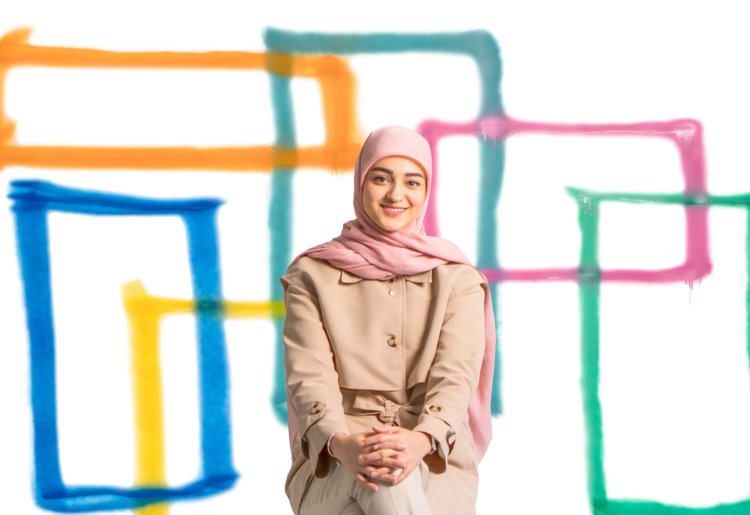On finishing an Electrical Engineering Master’s in her home country of Iran, Maryam Dodangeh started looking at options for further studies in Europe. A vacancy came up at the University of Twente (UT). It was with the Integrated Circuit Design Group, where professor Bram Nauta works. ‘It was an incredible opportunity,’ says Maryam. ‘I read his papers when I was a student. He was one of my idols and role models; he’s known all over the world.’ She applied, was accepted – and soon her rollercoaster ride at UT was underway.
‘I first engaged seriously with electrical engineering when I was doing my Bachelor’s at the Amirkabir University of Technology in Tehran,’ Maryam recalls. ‘The competition there is very strong, and it was thrilling to be accepted into one of the top three universities in my country. My Bachelor’s studies were going well, so I accepted an invitation from my professor to do a Master’s.’ Close to finishing her Master’s, Maryam heard about a vacancy with professor Nauta’s group. ‘I was so happy on being accepted. Being in a position like this was a dream come true.’
Catching up at PhD Coffee Corner
Moving from Iran to the Netherlands has been an exciting journey for Maryam. ‘Being a student in Tehran was wonderful. The facilities there are great and we had excellent professors. Tehran is a super large city, super connected, and very alive. Although I miss home, the staff and fellow candidates at UT have been so welcoming and helpful. I feel so accepted, have made lots of friends and have even started learning Dutch.’
With a group of PhD candidates, Maryam often starts the day in the Coffee Corner. ‘We catch up with each other, discuss the weather – a thing they do a lot in the Netherlands – and go over any questions that there might be. We often meet here at the end of the day too, especially on Fridays, to celebrate the end of the week and the arrival of the weekend.’
Like being on a rollercoaster
‘When I’m doing my research and I have a bright idea, I take it and present it to my supervisor. We investigate it, look at the pros and cons. Sometimes the idea really is worth pursuing. It’s an exhilarating experience: I feel like the whole universe is on my side! At other times, we find a fundamental flaw in the idea, and everything comes crashing down. That can be heart-breaking; you can feel so low at those times. Doing a PhD is a lot like being on a rollercoaster!’
‘I’d choose to do a PhD again’
Maryam says doing a PhD is challenging, but she is loving it. The variety it brings is especially exciting, she notes:
- ‘The research is ‘your research’, and even though you are independent, there is lots of help from supervisors and other candidates;
- Your research takes you into lots of areas in which there is still so much more to learn – which can be both overwhelming and an exciting invitation to further exploration and discovery;
- You are still learning, but you’re also involved in teaching undergraduates – and I’ve found at UT that the research and the teaching balance theory and application;
- You’re studying at university, but connected with industry, meeting industry partners and collaborating with them;
- You are doing your PhD, but the process impacts you on a personal level as well: you pick up lots of life skills, like being organised, working under pressure, or interacting with a team. If I had to go back in time, I’d do a PhD again!’
Next steps
Together with her fellow PhD candidates, Maryam discusses the question of ‘Next Steps’ a lot. ‘The two obvious options are to continue in the academic world, or to go into industry,’ she says. ‘The two are related. I would like to go into industry, probably in a job that involves Research and Development, because I enjoy thinking out of the box, and seeing technology applied to good causes.’


